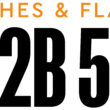The UK goes to the polls on Thursday (May 7) with Rupert Murdoch’s terrier tabloid The Sun having done its best to ensure it is on the winning side – like it has been since 1979. But it’s not quite like the last election in 2010 when, having switched his allegiance from Tony Blair’s Labour Party to David Cameron’s Conservatives, the Aussie-born media entrepreneur was secretly planning his own little celebration.
One month after the Conservatives stumbled into the UK’s last coalition government, Murdoch’s News Corp sprang a bid to buy the 61% it did not already own of British Sky Broadcasting (BSkyB). Nobody could have guessed what would happen next, least of all the British public, most of whom assumed anyway that Murdoch already owned the cable and satellite group he had personally built over the previous 20 years.
The rise of what had become the UK’s most profitable TV network was a huge personal achievement for the man who already controlled the largest group of national daily newspapers. But his 2010 bid ran into a political firestorm amid allegations of criminality by News Corp executives. It forced the closure of the once best-selling News of the World tabloid, the resignation of the company’s UK chief executive, a raft of prosecutions, interrogation in Parliament of Murdoch and his son James, and imprisonment of a former editor who had become David Cameron’s media spokesman.
News Corp was forced to withdraw its takeover bid amid the controversy of phone hacking, police collaboration, and political shenanigans. Within a few years, it had been forced to pay some $1bn in claims and costs, and to de-merge its 21st Century Fox TV and film group, including the BSyB stake. It would have been the least conceivable scenario when Rupert Murdoch secretly called on David Cameron the day after his 2010 election as Prime Minister.
He discussed the planned BSkyB bid and the company’s origins 20 years before, courtesy of his relationship with Margaret Thatcher. The new Prime Minister of a Conservative-Liberal coalition was flattered by the comparison with his distinguished predecessor. And Murdoch left Downing Street (as he entered it, by a back door) reassured that the new government would support his takeover of BSkyB – or, at least, not obstruct it.
It would be the fulfilment of a 30-year ambition to use newspapers to fund the future: TV. He had earlier been frustrated by UK government opposition to his rescue of the David Frost-founded ITV franchisee London Weekend Television. Murdoch’s alternative route was to pay £10m for a small English-language ‘pan European’ satellite channel, which he renamed Sky in 1982.
Margaret Thatcher had come to power in 1979 and – after a similar, secret meeting with Murdoch in 1981 – had waved through his acquisition of The Times and Sunday Times, even though it increased, to almost 40%, his share of UK national newspapers. The losses of the separately-staffed The Times were used to shroud the super-profitability of The Sunday Times and allowed the government, astonishingly, to view the newspapers together as a failed business.
In 1987, News Corp newspapers supported Thatcher’s third general election victory, just a year after Murdoch had boosted his profits – and political profile – by stealthily moving his newspapers to a new digital site at Wapping in London’s former docklands. He locked-out 6,000 striking printers. For months, the pitched battles between printers and police at “Fortress Wapping” resembled those of the fiery coal miners which had defined Thatcher’s first government.
Murdoch’s bold move, which consigned to history “Fleet Street” (London’s former centre of newspapers), unsettled many of his fellow newspaper publishers. But it transformed their fortunes too. News Corp UK doubled its profits to £145m and pushed into television.
Murdoch had failed in a bid for the official UK satellite broadcasting licence. And – when the successful bidder, British Satellite Broadcasting, refused to let News Corp into the consortium alongside UK media giants Pearson, Reed, Granada and Virgin in 1988 – he announced that that the Sky Channel would be relaunched as a UK-based service, using the Luxembourg-based Astra satellite. It was a smart move to lease channels on the Astra system rather than launching its own satellites (as BSB was doing) – and to get there first. Murdoch laughed when he read the complacent BSB fund-raising document which dismissed the threat of competition: “BSB believes it will be able to compete effectively (because)… the Astra project appears to be technology rather than programme-led.”
Sky TV went on the air in February 1989, while BSB was repeatedly delayed by technical problems and finally made it in April 1990. Even then, the launch was a fiasco with few set-top boxes even available for store demonstrations, while Sky had raced to 750,000 dishes – cheered on and promoted enthusiastically by News Corp’s newspapers, which also managed prominent coverage of their rival’s technological problems.
Murdoch’s cheap-and-cheerful satellite dish seemed to have beaten the BSB’s high-tech (but untested) “squarial”. But UK viewers, brought up on the tax-funded BBC and commercial free-to-air ITV, needed price-cutting persuasion to sign-up for pay TV – especially since it mostly involved the purchase of a satellite dish: few Brits had access to cable. It became an expensive campaign, with Sky initially incurring weekly losses of £4m after start-up costs of £120m.
Coming so soon after the investment in his new London newspaper presses, News Corp’s UK subsidiary was running close to empty and, in August 1990, reported annual losses of £257m. The British TV venture posed a real threat to the survival of News Corp itself soon after Murdoch had paid a dizzy $3bn for the world’s largest listings magazine, the 17m-circulation TV Guide, in the US. (Warren Buffet’s advice to the TV Guide owner on Murdoch’s unsolicited offer was memorable: “Run for the bank”.) News Corp’s financial pressures were spiralling.
Dangerous debt
The trouble was that its frantic expansion had been funded by borrowings from a myriad of separate lenders in multiple currencies all over the world. As recession hit the UK and US, News Corp’s debts threatened to crush Murdoch. In the event, he struggled through months of personal negotiations with, literally, hundreds of creditor banks by selling off publishing assets and cutting out losses. He made some great pressure-relieving divestments: His travel information business fetched 140% more than he had paid Ziff Davis three years before. The company’s 50% of Elle magazine raised $160m only two years after its $5m launch. And the US supermarket tabloid The Star (in which News Corp had invested less than $10m) was sold for $400m.
But Murdoch’s survival would still depend on a satellite merger in London being brokered, ironically, by John Veronis, of media specialist Veronis Suhler, who had been responsible for selling him the egregiously over-priced TV Guide.
Everybody needed a merger. Sky was now losing £2m a week, but BSB’s losses were four times as much. BSB struggled to achieve even 25% of the 400,000 satellite customers it had budgeted, not helped by “squarial” design problems. Spending had gone through the roof as it splashed £400m on Hollywood film rights, and out-bid ITV for a four-year football rights deal – before demanding yet more money from its shareholders.
The secret talks took place in the leafy splendour of the Lucknam Park hotel, near Bath in Britain’s south west. Murdoch played hard to get and appeared to leave most of the negotiating to others. But, even without him in the room, the talks stumbled across the cultural differences between the two groups: BSB people, including its gilt-edged shareholders, saw Sky as an example of Murdoch philistinism. Sky people, including Murdoch, thought BSB was filled with effete British fat cats. He couldn’t forget the personal slights when Pearson had refused him a place on its board when he became a major shareholder in the 1980s.
BSB’s shareholders were too preoccupied with their own pressures to realise they were negotiating with a wounded soldier, even though he had refused earlier merger talks suggested by one-time BSB shareholder Richard Branson. In the event, Branson shared Murdoch’s views of the spendthrift BSB management.
BSB had become a world-champion spender and had quickly bust its launch budget. Estimates that it would need over £500m to take it to breakeven in 1993 were blithely increased to £650m and, then, to £1.3bn. The company’s long-term-leased flashy Marco Polo headquarters on the Thames had cost £26m to build. The building featured £70,000 granite desks, stationery cupboards stacked with Montblanc pens, and a carpet that, alone, was said to have cost more than the whole of Sky’s headquarters on a soul-less business park near London’s Heathrow airport.
Even the launch delay had been managed in a very BSB way with its highly-paid advertising team receiving commission on theoretical sales they would or could have made – if only the station had been on the air. The shareholders soon had enough of their free-spending company – and started to get scared of Sky. Virgin pulled out, and Granada, Reed and Pearson decided to push for a merger at all costs.
By October 1990, Murdoch had played a blinder of a poker game and out-smarted his corporate rivals to achieve a merger funded by them. News Corp – struggling at the time to service £4bn of corporate debt – became the largest shareholder.
Although each side owned 50% of the ‘new’ BSkyB, it soon became clear that this was effectively a takeover. It would be managed by Sam Chisholm (whom Murdoch had recruited from Kerry Packer’s successful Channel Nine TV in Australia) would use Sky’s low-cost Astra satellite, and would be based at Sky’s low-cost headquarters. Even the eventual flow of profits would go first to News Corp. BSB shareholders were just relieved to find an exit.
They also thought that Murdoch would be able to get government approval for the deal. They were right. His cosy relationship with Prime Minister Thatcher made light of the fact that the Sky merger was a clear breach of the terms of BSB’s government-awarded licence – and also of cross-media laws in the UK, where Murdoch’s newspapers should have prevented him owning more than 20% of any TV channel. That the new channels would be broadcast via a Luxembourg-based satellite was the “offshore” fig leaf used to wave through the merger.
So, Sam Chisholm got to work justifying his reputation. He proceeded to sack almost all of BSB’s 500 staff, some in open sessions. He and Murdoch had already decided Sky was best and were the people to keep. Most BSkyB executive jobs went to Sky people. The CEO renegotiated the Hollywood deals and slashed BSB’s pricey commitments. He used written-off BSB assets and programme rights to reduce Sky’s overall costs by 10% – even though it had already been a lean and cash-starved operation.
By 1992, with News Corp slowly emerging from its own debt crisis, BSkyB moved into operating profit, although it was still paying almost £3m week in interest charges from the start-up losses of £1.25bn.
Chisholm was now ready to strike the deal that would transform the satellite broadcaster’s prospects. In 1992, the 20 leading English football clubs broke away to form the Premier League. That radical decision at the top of the country’s largest spectator sport was matched by an unprecedented decision to award exclusive live broadcasting rights – to BSkyB. It was a move which backed Murdoch’s view that sport could be a “battering ram” for TV, something which he (and Chisholm) had learned from Kerry Packer’s breakaway movement in world cricket 15 years previously.
British football was elated, if slightly shocked, by the £304m that BSkyB agreed to pay for television rights for the first five seasons of the Premier League. But that was substantially less than the profligate BSB had agreed to pay for rights to Hollywood movies, few of which were actually blockbusters. The UK football decision to assign broadcasting rights to BSkyB in 1992 quickly paid off for everyone.
Before then, pay television was as untested a proposition in the UK as live televised football. However, a combination of Sky’s strategy, the star quality of Premier League football and the UK public’s appetite for live games made it the start of a period of rapid expansion for BSkyB. In future years, the football deal doubled to £670m and then by 50% to more than £1bn – before it started to get competitive, not least through the demands of the competition authorities in Brussels. Within two years of securing Premier League football, the satellite broadcaster had 3.5m subscribers. By 2010, its multi-channel services were in 10m homes.
BSkyB, now (again) re-named Sky, has had a remarkable quarter-century – and not only with its pioneering and innovative coverage of British football. It owns and operates the UK’s largest portfolio of pay TV channels across entertainment, sports, movies – and also news. In the 26 years since it became the UK’s first 24-hour news channel, Sky News has been far more impressive than most of Murdoch’s critics had predicted or could believe. It cost over £40m to launch and its early budgets were almost £30m a year. Owing much to high-quality, long-term loss-making Murdoch media like The Times of London and The Australian, Sky News was almost designed to appeal to the UK politicians, journalists and opinion formers as he trampled across the country’s cross-media regulations.
The achievements of Sky News (now seeking to become a truly global news service) became clear in Murdoch’s 2010 bid to take over BSkyB. That negotiated bid included guaranteed independence and subsidies for what had become one of the UK’s leading news providers – but which remained loss-making. Sky News had half the budget and one-third of the staff of the long-established Independent Television News. But it, alone, had become a serious UK challenger to the dominant BBC News.
Today, Sky TV is in 11.5m homes, reaching almost 40% of the UK population. Football made pay TV in a BBC-dominated country where many insiders doubted it could work. In the process, Sky has become the world’s most profitable TV company and one of the most successful media groups. When Sam Chisholm left in 1997, it was a top 20 UK corporate with annual profits of £315m. A huge leap, but just the start.
Twenty-five years after the merger, Sky TV (augmented with the £6.9bn buyout in 2014 of sister companies Sky Deutschland and Sky Italia) sees Murdoch achieve his long-time ambition of creating a pan-European pay-TV giant, with more than £11bn in revenues and 20m customers in the UK, Germany, Italy, Austria and Ireland. The enlarged business is a programme and content powerhouse with a budget of £4.6bn.
Over the past seven years, BSkyB pre-tax profits have increased 86% from £637m to £1.2bn on revenues up by 54%. Earnings per share increased by 138% during 2008-14. The company accounts for some 12% of the profits of its 39% parent 21st Century Fox.
In revenue terms, BSkyB is about one-third the size of Fox. And it’s now offering customers the triple-play of broadband, phone, and TV. And the company is working hard with its low-subscription Now TV internet service, available via games consoles, set-top boxes, tablets, smartphones and TVs. Next comes a mobile phone network through 02. Successive CEOs have proved more than up to the task of succeeding the high-achieving Sam Chisholm, not least James Murdoch whose fine track record at BSkyB has become obscured by splashes from the newspaper phone hacking investigations.
However, this most exciting of media companies is now at a crossroads – regardless of whether 21st Century Fox is (ever) able to take full control. The biggest questions come from the Premier League football itself. The price of ‘the beautiful game’ just keeps getting higher. And, in February this year, Sky paid a whopping £4.2bn to screen 126 live Premier League matches for three years from 2016. The auction was fired-up by competition from telecoms-turned-tv group BT.
In what seemed like a desperate bid to hang on, at all costs, to its football TV supremacy, Sky paid at least £1bn (24%) more than investors had expected – and 83% above its current deal. Sky’s cost-per-match will now increase by 70%. Analysts suggest Sky was successfully suckered by BT, an under-bidder which actually agreed to pay less than £1bn for the rights to show 42 games a season (just 25% up on its own existing deal). But the broadcaster tried to play it cool: “Sky has a clear set of plans in place to fund the bid and deliver its financial plans in line with expectations. The company will work hard to minimise the impact of higher rights costs on consumers, with the majority of the funding coming through substantial additional savings to be delivered by efficiency plans.”
There are three wobbles which undermine the calm reassurance:
First, Sky rushed out an announcement that the price of all its television packages will increase in June this year, instead of its usual September. The price of the Sky ‘family bundle’ has increased by 9%. Newspapers drew attention to Sky’s inflation-busting price rises of recent years.
Second, the web is carrying an increasing number of cases of people who have tried to cancel their Sky subscriptions but have, apparently, found it difficult to do so. There are stories of cancelling subscribers being held on the phone for more than an hour, with threats to keep taking the customers’ money in bank debits if the bizarre “procedure” for cancellation was not followed correctly.
Third, the UK media is feeding on quotes like this, reportedly from a Sky journalist: “It’s a huge reorganisation, low morale, bad HR management – but good strategically and down to the breathtakingly costly new Premier League deal. Big cuts are on the way.”
Such anecdotal stuff is not documentary evidence, but it is also not the kind of scuttle-butt traditionally linked to Sky, which has built a stellar reputation for exciting content, technological innovation and good customer service. It implies that the latest football auction really has shaken the foundations of the satellite broadcaster. For once, the media hype seems real.
But even that is not the whole story.
That belongs to the future and what Americans have come to describe as “cutting the chord”: cable customers becoming unwilling to continue paying high prices for packages which include many more channels than they actually want. It is broadcasting’s version of “unbundling” which (sort of) exploded when iTunes first enabled customers to download single tracks instead of whole CDs – but which daily newspapers still have yet to accommodate in their digital services.
The Sky vibes simply underline that, for all its digital expertise, it is a pretty traditional media provider of bundled services – and that will have to change. And, of course, the bundling is not confined to the content. Sky is a content company that has moved into infrastructure and sees itself as a comprehensive provider of voice, data and entertainment services. By contrast, the content-only Netflix’s successful launch into original programming (with Kevin Spacey’s House of Cards) was the
warning shot whose reverberations are being felt all around the world.
New rivals
Last month, Sony launched a US internet television service that will stream more than 50 channels into homes via its PlayStation game consoles, having struck a deal with Viacom, owner of MTV, Comedy Central, and Nickelodeon channels. Satellite TV provider Dish Network has announced similar plans and a deal with Walt Disney. Amazon Fire is commissioning original programming and making waves around the world. And Apple is planning something similar with its set-top boxes. CBS
and HBO are also now moving into the online business. There will be many more.
As in other media channels, the disruption is compounded by “the millennial challenge”. Just as large numbers of young people are getting their news from social and digital-only media and causing a chasm in the age profile of newspaper readership, there are now millions of homes whose occupants don’t watch broadcast TV at all. They watch, listen, and read over broadband. In that sense, those young and not-so-young people haven’t even got the cord.
In some ways, a predictable scenario is being played out. But there may be many surprises. Take sports. Wired magazine recently reported Microsoft’s managing director Tony Emerson as reassuring cable and broadcast companies that this part of their world was safe: “Sports is one of those last things that makes people still want to watch TV in a linear fashion. Unlike almost everything else on TV, sports happen in the moment. And fans want to be there for that moment.” Well, maybe. But is this assumption challenged by the growth of ‘on demand’ news? And is it just possible that “unbundled” versions of TV sports – when most viewing has defected to the the web – will encourage the whole genre to be sold direct to the consumer rather than through broadcast-type intermediaries?
Could such services be lower-priced and more flexible (i.e. game by game)? And last week, the world’s networks paid a cool $300m for TV rights to the richest-ever boxing match in Las Vegas, only to discover live-stream feeds all over Periscope and Meerkat from viewers who had paid $100 to watch it on their screens. Something else for broadcasters to worry about.
TV is bracing itself for the disruptive question that has been keeping newspaper executives awake for the past decade: “How can we create fully-competitive, profitable new media without accelerating (or ensuring) the demise of existing businesses?” A completely new business model with new skills, people and insights becomes – to say the least – challenging. All we know is that the eventual winners will be those who provide best-value services for consumers. Suddenly, Sky’s rocketing price for UK football seems even more scary.
It’s the latest big test for Rupert Murdoch. But the UK’s prime minister won’t be able to help.
29 January 2016 UPDATE from The Guardian: James Murdoch is to return to Sky as chairman, almost four years after he was forced to stand down in the wake of the phone-hacking scandal. Murdoch, who was chief executive and then chairman from 2003 to 2012, stepped down from the then BSkyB (renamed Sky after its takeover of sister companies in Italy and Germany) because of the fallout from the phone hacking scandal at News UK, publisher of The Sun, Times and now defunct News of the World, where he held the role of chairman. At the time, Murdoch said he felt it right to stand down as chairman of Sky – which is 39.6% owned by Rupert Murdoch’s Fox (now de-merged from News Corp) – to avoid becoming a “lightning rod” for criticism of Sky because of his association with the phone-hacking scandal. Murdoch, who remained a Sky non-executive director after stepping down as chairman, replaces Nick Ferguson who is leaving the company after 12 years. (www.theguardian.com).
<Some observers note that the return of James Murdoch comes after several months of renewed semi-secret contact with the UK government by the Murdoch family and their UK executives. This leads to speculation of a renewed Fox bid to acquire Sky. Further, the James Murdoch announcement follows a few days of tweets by Rupert Murdoch criticising the UK government for “giving in” to Google lobbying over the US company’s much-criticised tax “settlement”. Could these strident comments encourage the UK Government to decide now not to comment or react to the Sky management change?>



